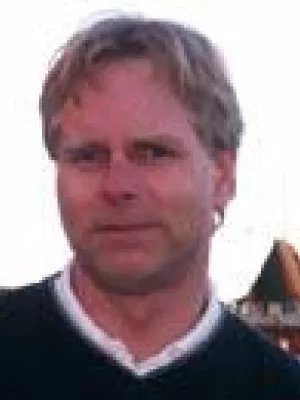
Micael Runnström
Senior lecturer

Features of the international MSC educational programme in environmental management and modelling
Author
Summary, in English
“International Msc Educational Programme in Environmental Management and Modelling” (GeoNetC) is a European Commission funded project under ERASMUS+: Higher Education – International Capacity Building programme (Project No 561967-EPP-1-2015-1-SE-EPPKA2-CBHE-JP). It began in October 2015 and ended in October 2018. Initiated by the Lund University and partners from the Middle East countries, the GeoNetC project is an ambitious project aiming to match labour market needs with geospatial education offer both in Europe and Middle East countries. The aim of this three-year project is to enable European universities to exchange best practices and innovation with each other and with Middle Eastern universities regarding the mismatch between Europe’s geospatial education and training and the geospatial education in Middle East countries. There is a growing need for well-trained students at all levels – vocational, bachelors, masters – in the field of geospatial technologies. Obviously there is a growing number of jobs available in land surveying, mapping data collection, data processing, data delivery and turning data into information in both European and Middle East countries. Through cooperation, all partners will improve the quality of their respective academic programs. The European partners will make their courses more attractive and well adjusted for students from the Middle East. As well, they will increase the general quality and add state-of-the-art learning components to their offerings, and the partners from the region will significantly increase the academic level and quality in the education they provide. There will be spin-offs into other subjects than environment/Geomatics, since both the pedagogic models developed (e.g. e-Learning) and communication and administrative tools can be used throughout the partner universities. Therefore, this partnership cooperation will be of great value to Partner Countries as well as to Programme Countries. A number of distance learning courses/modules are developed jointly by partner institutions in Europe and the Middle East. The main aim of the network is to promote the use of spatial information and earth observation for environmental management and modelling through capacity building and institutional development, via a network in which all partners would contribute from their own positions of strength. All 13 modules are following EU higher education standards regarding e.g. ECTS, and learning outcomes. The outcome of the project, in terms of courses/modules, will be freely used among the partners, with the possibilities of offering individual courses or a whole MSc programme, whether individually or together. All produced material was evaluated/quality controlled by an external evaluation group of independent experts within environmental management and modelling, higher education, as well as pedagogy.
Department/s
- Dept of Physical Geography and Ecosystem Science
- MECW: The Middle East in the Contemporary World
Publishing year
2018-12-31
Language
English
Pages
134-139
Publication/Series
Geodesy and Cartography
Volume
44
Issue
4
Document type
Journal article
Publisher
Taylor & Francis
Topic
- Other Earth and Related Environmental Sciences
Keywords
- Distance learning system
- Geoinformation system
- Geospatial education
- Higher education
- Well-trained student
Status
Published
ISBN/ISSN/Other
- ISSN: 2029-6991

